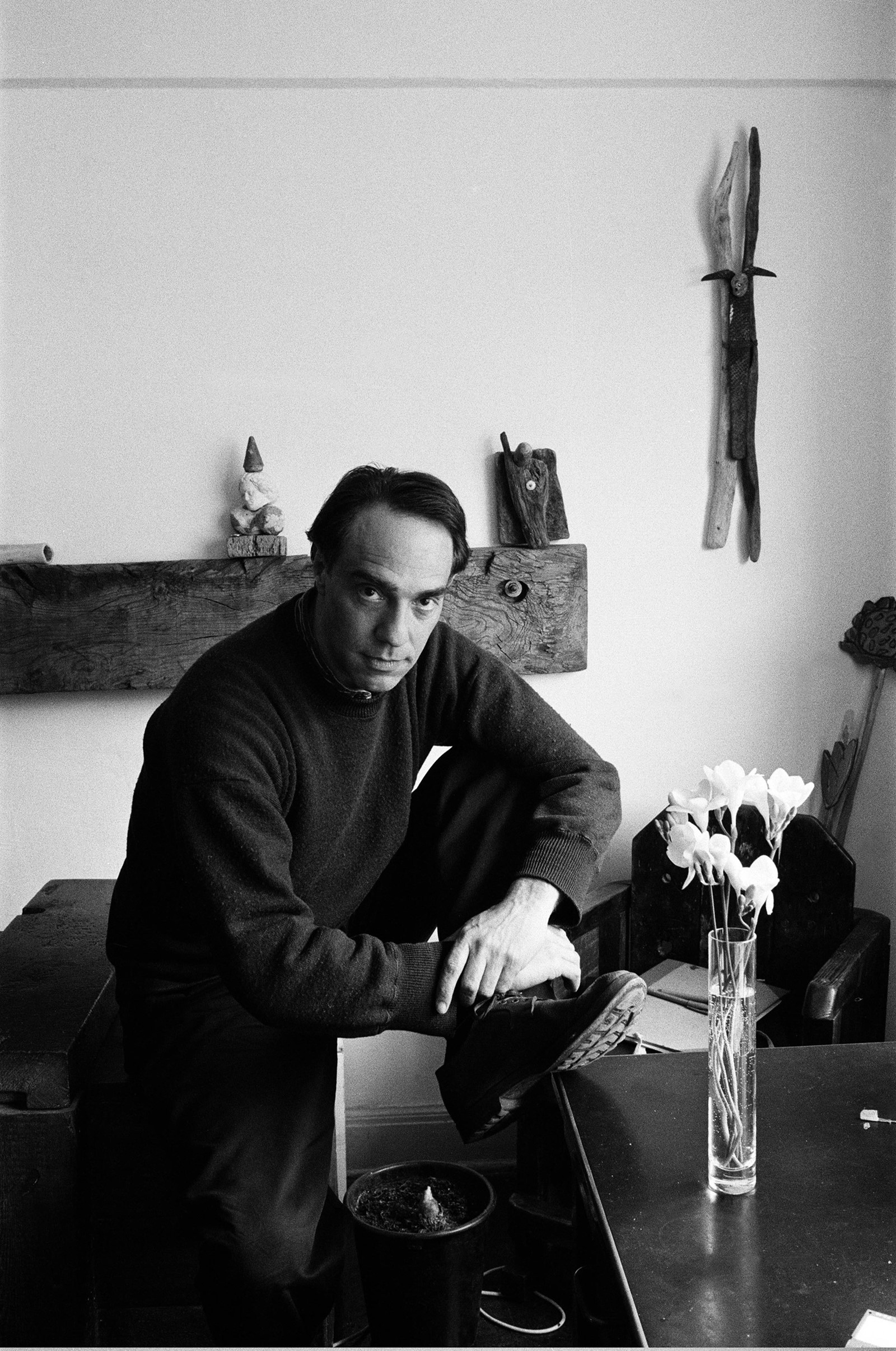In his 1992 memoir At Your Own Risk, Derek Jarman wrote that his life as a young gay man in the 1960s was not the gift of politicians, but of “identifiable homo” artists: “Jean Cocteau (above board), Jean Genet (under the counter), William Burroughs and Alan Ginsberg (heard of but not read).” Art is underestimated, Jarman argued, in favour of political action. He thought this was wrong.
Since the 1970s, for many queer people, his list would include Derek Jarman: films like Jubilee (1978) and Caravaggio (1986), paintings like Queer (1992), his diaries Modern Nature and Smiling in Slow Motion (1986-94), and his cottage and garden in Dungeness. As queers come out and piece together their lives, Jarman’s work is a map.
Now, to mark Blue’s 30th anniversary, director and novelist Neil Bartlett has produced a live version of Jarman’s 1993 film, released just months before his death from Aids-related illness in 1994. “It’s called Blue because there’s no film,” says Bartlett. “It’s just blue. And what you hear is mostly Derek’s diary in the months he was losing his sight.”
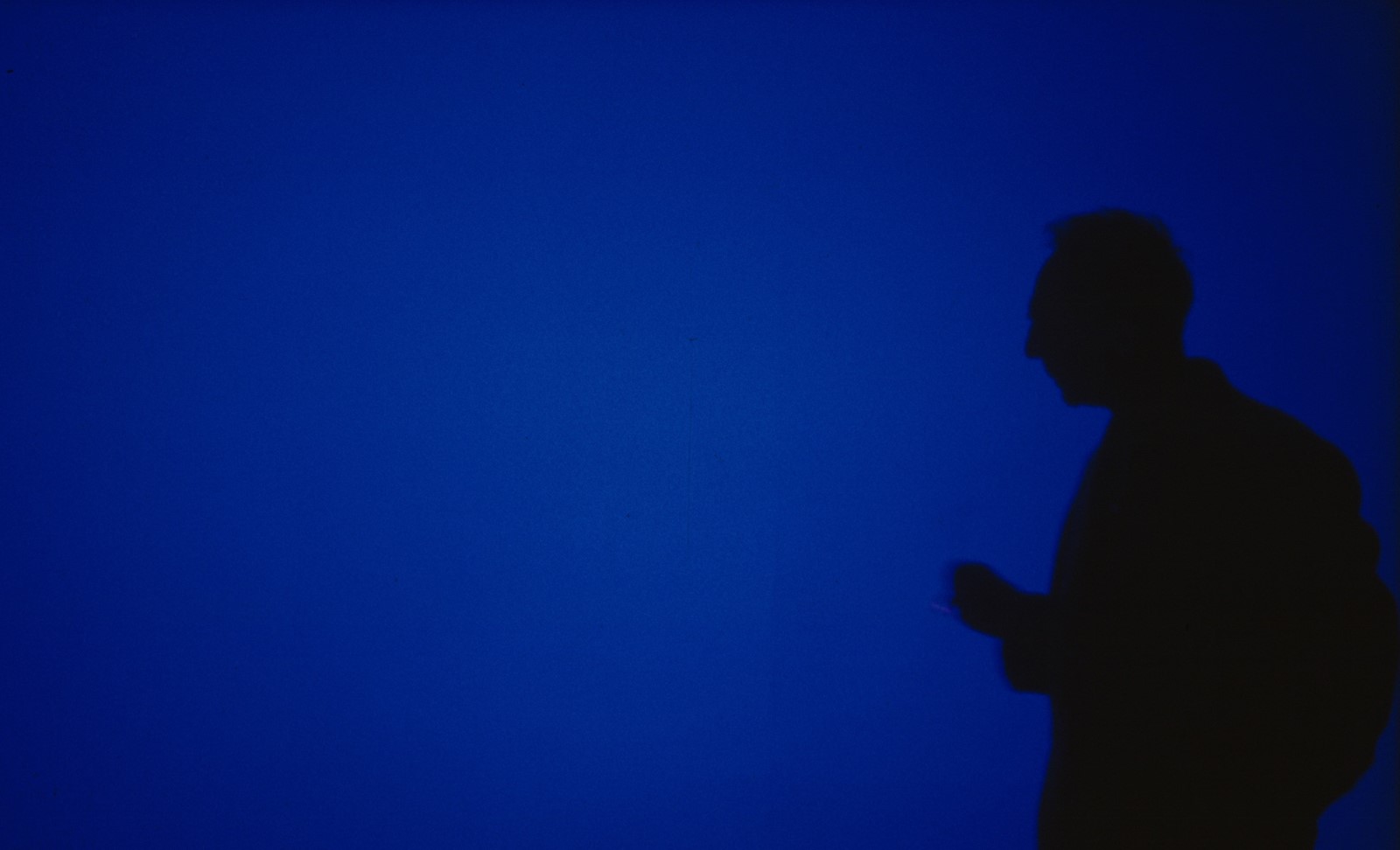
Bartlett is entrusting the live reading of Jarman’s words to four electrifying performers: actor Russell Tovey, writer and performer Travis Alabanza, writer and programmer Jay Bernard, and TS Eliot Award-winning poet Joelle Taylor. Performances of Blue Now will take place for one night only at Brighton’s Theatre Royal, Home in Manchester, Turner Contemporary in Margate, and Tate Modern in London.
Jarman visited Tate Britain in 1974 to see a retrospective of the French avant-garde artist Yves Klein, known for his monochrome works like The Void and the use of his patented shade of blue. Jarman wrote down an idea in his workbook, an idea he would toy with for 20 years: “the blue film of Yves Klein.”
Blue, as both artists knew, is the colour of the divine; of the spirit freed from matter; of visions and of dreams. “The blue,” Jarman wrote of Klein, “is akin to the ultimate.” Facing his approaching death, Blue is Jarman’s transcendence. The film captures, to use his own words, “the bliss that unlocks.”
Below, Blue Now’s director Neil Bartlett and participating poet Joelle Taylor sit down with AnOther to discuss the project and Derek Jarman’s legacy.
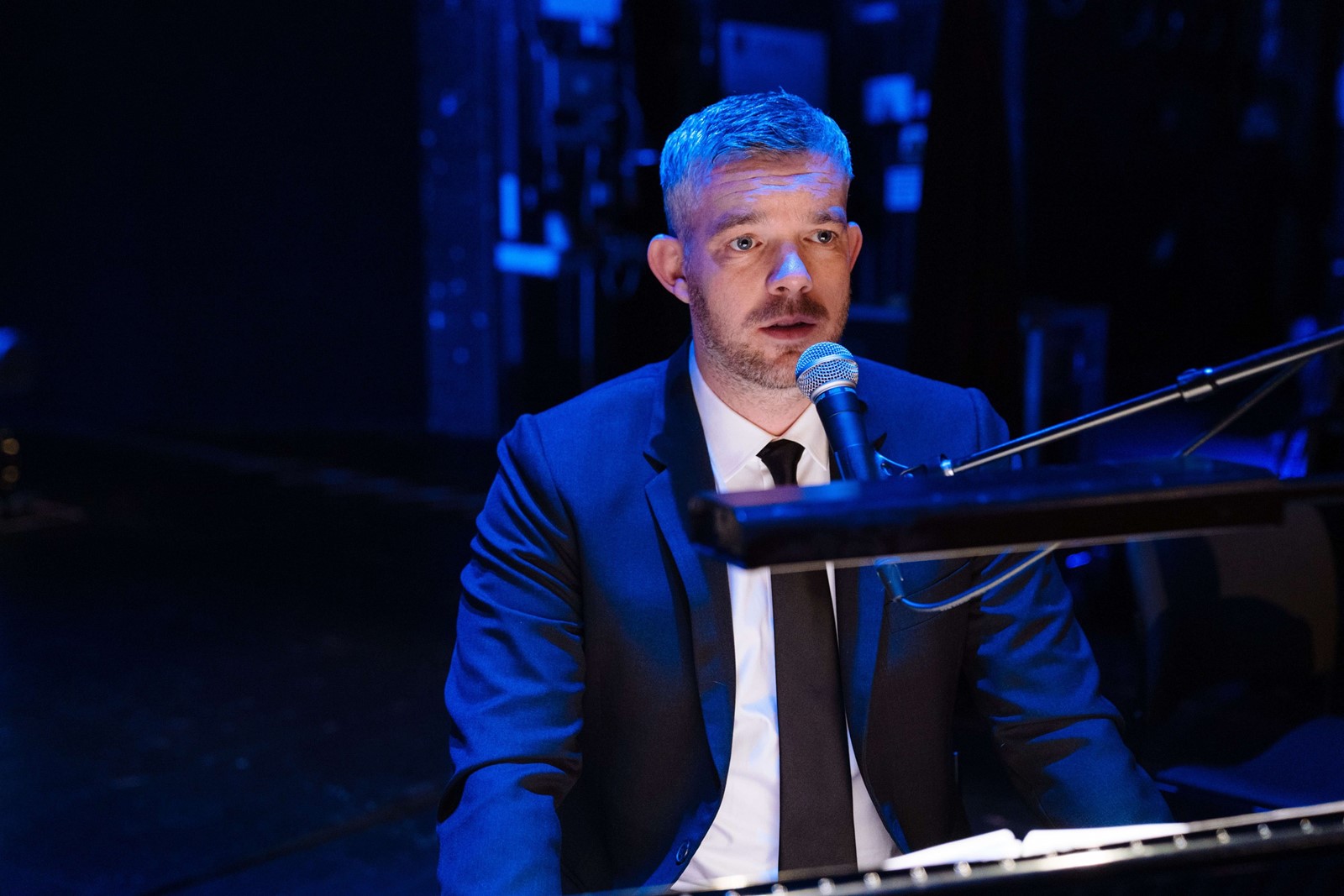
Neil Bartlett: What the audience will experience is Blue then and Blue Now at the same time. We’re not changing a word or anything about the film. Our job as a company is to create a space where people can hear Derek’s words and Simon’s improvised score. We’re channelling Derek. That’s the art, I think, of performing Blue live. It’s about putting one’s voice at Derek’s disposal.
Joelle Taylor: Derek was the template for the way I wanted to become an artist: an artist and activist and a thinker and a provocateur. He was a cult figure in the 1980s when I was coming out as gay. Derek arose out of this punk, queer aesthetic of the 70s and 80s that had a huge creative importance, that sense of doing it yourself. And doing the thing that you shouldn’t.
Back then it was specifically for gay men. And for gay men, Derek was the touchstone for an artistic community that grew up around him. I was on the very wide periphery of that because I knew gay men who were part of his salons, but I wasn’t part of it myself. What he was speaking to was a specifically gay male experience, but I feel like he was speaking to my experience, too. There is a queer aesthetic there.
“Does watching Blue actually release endorphins? It certainly feels like it does. It enlivens you. You surrender” – Neil Bartlett
What stunned me when I got the script for Blue is what an extraordinary poet Jarman is. There is such tenderness and kindness in his writing. The rage that you expect isn’t there at all. It’s also a really modernist piece of work. It’s got references from lots of different sources, like [TS] Eliot’s. So you can experience Blue as the most beautiful poem.
NB: Blue isn’t gloomy at all. It’s a work full of joy and courage and grace. It’s blissful. I’ve spent many times with the film while preparing for this project and mostly I’m blissed out. I’d love to be wired up. I mean, does watching Blue actually release endorphins? It certainly feels like it does. It enlivens you. You surrender.
By pure coincidence, Russell Tovey and I had the idea to perform Blue live at the same time. We both felt really passionately that we want people who never met Derek to meet Derek. Especially younger queer people. He’s someone who will be really useful in your life as part of your toolkit.
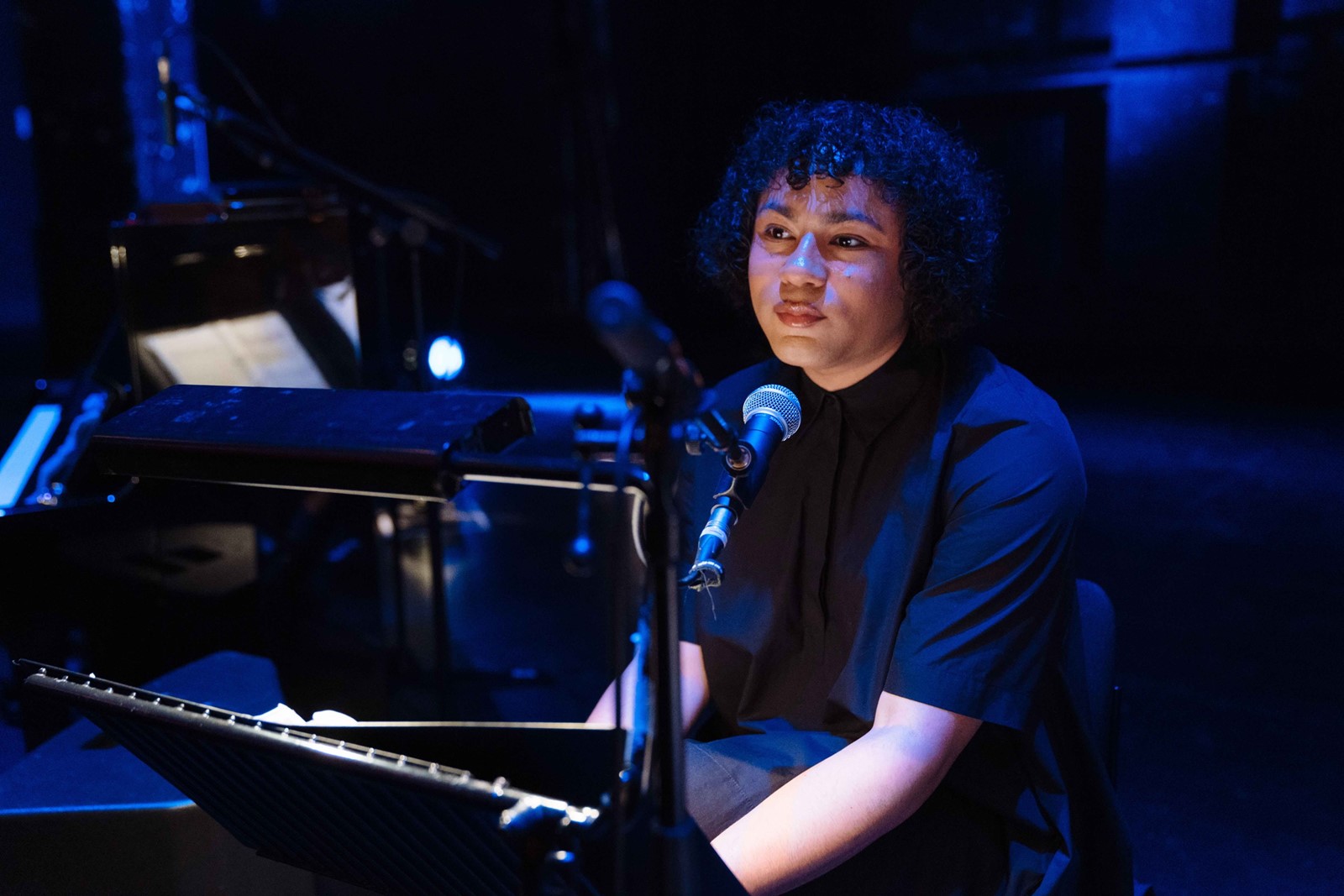
JT: I think Derek is useful because he exemplifies the artist as activist, as agitator and philosopher. He’s useful because he was about craft as much as ideas and concepts. He searched for humanity in everything. And he’s useful because he curated a community of other queer artists and thinkers that a younger generation would really benefit from having.
NB: I’m entrusting the text of the film to four voices I’ve chosen, not least because they’re so very different from those Derek used the first time around. In the original film, the words are spoken by his closest friends who speak almost like him. Whereas Joelle and Jay, Travis and Russell have voices as unlike Derek’s as you could imagine. In a way, the difference of the voices is the measure of the passage of time. You weren’t hearing their voices ten years ago, let alone 30 years ago – or not as much. And Joelle and Jay and Travis are all brave and beautiful queer artists in their own right. They have a very individual practice and a very individual sound. And they’re all wordsmiths.
JT: It’s a history that a young generation of queer people have completely lost touch with. But Derek records it all. He left this extraordinarily decadent but harrowing aesthetic which is forensic. The script of Blue is made up of his diaries and memoirs. It’s him sitting in a hospital waiting room and making notes and recording things. This is so important to queer history because we don’t have much recorded. It’s an astonishing testament.
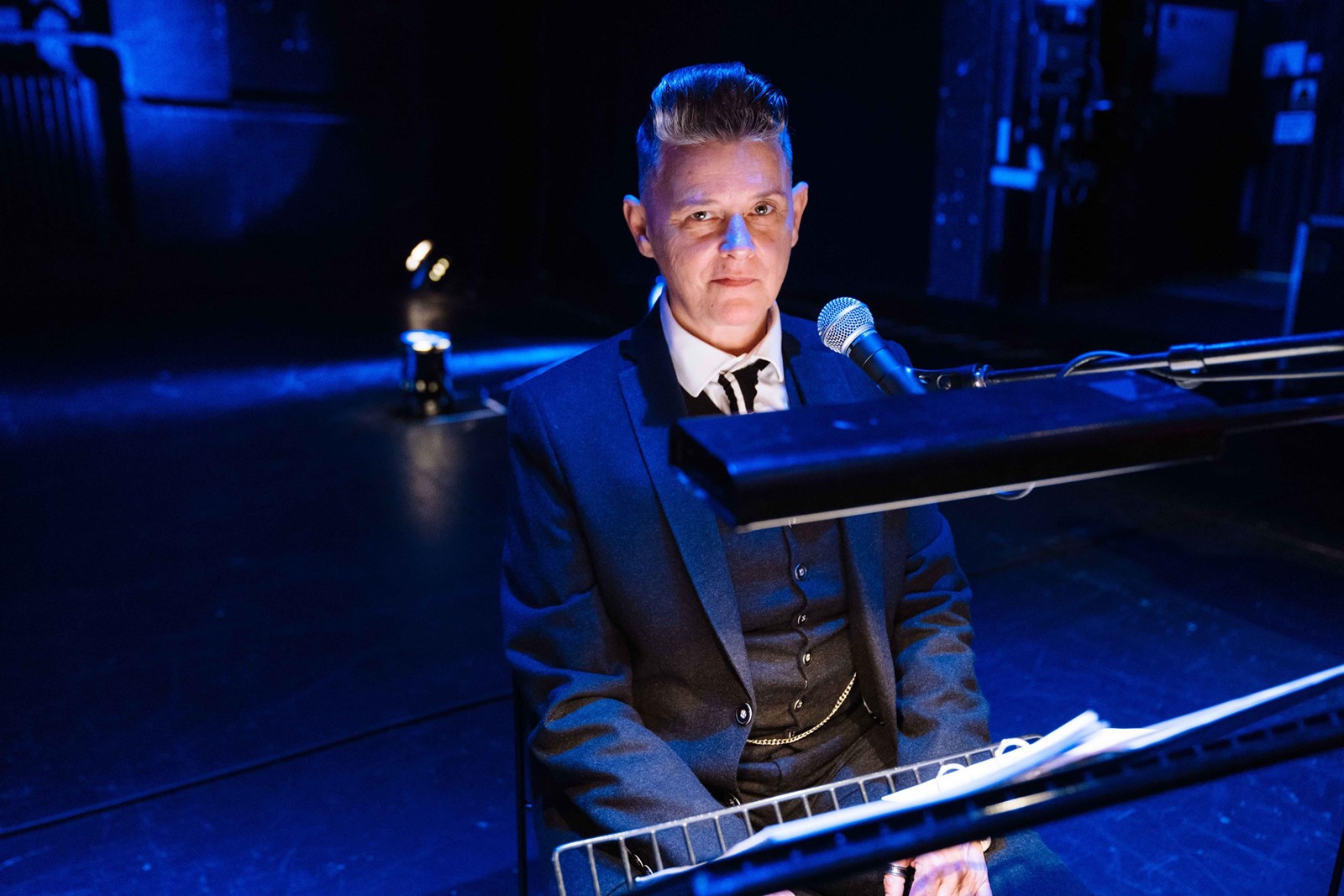
NB: Derek is very clear that the reasons why we ought not to forget are positive ones. We need to remember to be vigilant. We need to remember that compassion is a daily practice. We need to remember that empathy implies politics. It necessarily leads to some kind of action. So I am doing this project precisely so that for the hour and 20 minutes that Derek proposes, sit with this colour, let it clear your mind, let it give you permission to look both into yourself and way beyond yourself. What does it feel like to hear a man now 29 years dead reciting the names of his friends who died from HIV/Aids? I want to create this show precisely to give a space in which Derek can help us to think through these things.
JT: As a community that’s excluded because of bodies, we need our bodies back together in a space. And I’m hoping that the joy of Blue Now will come from the fact that we’re all in one space.
NB: There is a really big problem at the moment, and it’s gotten worse in the last decade, of the loss of physical spaces of transmission. The loss of the places where someone would say to you either in a bar or a bookshop or the morning after, ‘What do you mean you’ve never heard of Derek Jarman? Or Jean Cocteau? Or you’ve never read a Shakespeare sonnet?’ You need older queens or someone you just slept with to say, ‘Mary, get yourself together. Go away and read this book.’ There’s a real danger of the ‘Everything’s all right now’ argument that now the law has changed, we no longer need queer culture to nourish us in our ongoing struggle. Yes, we bloody do. And that’s why we’re doing Blue Now.
Blue Now is being staged at Brighton Festival, May 7; Turner Contemporary, Margate, May 13; Home, Manchester, May 21; and Tate Modern, London, May 27. Find out more online here.
